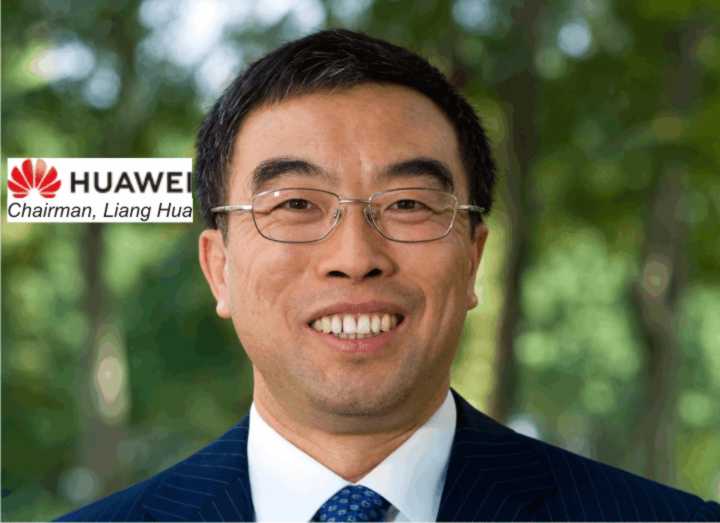…to concentrate where it is welcome
By MKPE ABANG
Huawei has threatened to pull out of some countries hostile to it and focus on those where it is welcome. Chairman of the Chinese technology giant, Liang Hua, voiced the warning at the World Economic Forum 2019 in Davos.
Liang sounded the warning that Huawei will focus on countries “where we are welcome” amid accusations the company poses security risks in Western countries.
On the side-lines of the WEF 2019, the company hinted that it is not going to tolerate such hostility any longer and may simply pull out of countries who do not want it to stay.
“We will transfer technology partnerships to countries where we are welcome and where we can have a collaboration,” Liang stated on the side-lines of the business forum, as cited by AFP.
“We will focus not just on countries but on where we are welcomed by customers. Because ultimately customers have the choice to make decisions,” he said. The chairman added that the company wants to focus its efforts “on those customers who do choose us.”
In particular, the United States has accused Huawei of spying, and of posing a security threat to the country. It has been pushing its overseas allies to impose restrictions on the company.
Australia and New Zealand have already restricted Huawei’s involvement in the development of their 5G networks, while Japan is set to ban the government from purchases of Huawei products.
The United Kingdom also followed the US lead and expressed “deep” concerns over the telecom provider, while Washington may reportedly go even further and fully squeeze the company out of its market.
The tech giant has repeatedly insisted it has no ties to the Chinese government and denied the spying allegations. On Tuesday, January 22, Liang restated that Huawei fully complies with laws in the countries where it operates and said it will allow foreign officials to visit its labs.
Huawei is involved in a separate row with Canada and the US after its finance chief and deputy chairwoman, Sabrina Meng Wanzhou was early December, 2018, arrested in Vancouver over the company’s alleged noncompliance with Washington’s sanctions against Iran.
On Tuesday, the US told Canada to prepare for formal extradition proceedings against Meng, who is the daughter of Huawei founder, Ren Zhengfei. Chinese authorities immediately fired back, warning of possible retaliation.
Mr Liang called for a “quick conclusion” to the case, so that Ms Meng could regain “her personal freedom”.
He also restated the company’s claim that the detention of two Canadian nationals in China, seen by many as retaliation for the arrest of Ms Meng, “has no relation with Huawei”.
Huawei’s Vice-chairperson and CFO Meng Wanzhou was arrested in Canada on December 1, 2018, at the request of the United States, which accuses her of violating US sanctions against Iran.
Liang Hua
Born in 1964, Mr. Liang holds a doctorate degree from Wuhan University of Technology. Mr. Liang joined Huawei in 1995 and has served as President of Supply Chain, CFO of Huawei, President of the Business Process & IT Mgmt Dept, President of the Global Technical Service Dept, Chief Supply Chain Officer, Chairman of the Audit Committee, and Chairman of the Supervisory Board. Mr. Liang is now Chairman of Huawei’s Board of Directors.
Huawei largest telecom equipment supplier
Huawei has surpassed Sweden’s Ericsson AB to become the world’s largest telecom equipment supplier, despite moves by the U.S. and Australia to limit official use of products from the Chinese tech giant.
Huawei Technologies Co. Ltd. was the only major equipment-maker to gain market share last year, increasing to 28% in 2017 from 25% a year ago, according to research firm IHS Markit.
Ericsson trailed slightly behind with a 27% share, while Nokia Oyj from Finland was third with a 23% share. China’s ZTE Corp. and South Korea’s Samsung Electronics took the fourth and fifth spots, with a 13% and 3% share, respectively.
Huawei’s gain in market share came despite headwinds in the U.S., as lawmakers in January introduced a bill that would prohibit government purchases of telecom equipment from the company as well as from ZTE, citing the firms’ ties to the Chinese military and backing from the ruling Communist Party.
In 2012, the U.S. banned all domestic carriers from buying equipment from the two companies, which count major carriers as their main customers.
Australia made a similar, though less drastic, move in 2013, when it banned Huawei from supplying equipment for a $38 billion high-speed national broadband network.
In February, reports said the Australian military is phasing out use of Huawei and ZTE smartphones on national-security concerns.
The IHS Markit report, released on March 6, tracks more than 50 categories of equipment, software and subscribers based on all existing generations of wireless network technology.
Overall, the worldwide mobile infrastructure industry’s revenue totalled $37.2 billion last year, declining 14% from $43.3 billion in 2016, dragged down by slower demand in China, the research firm said.

